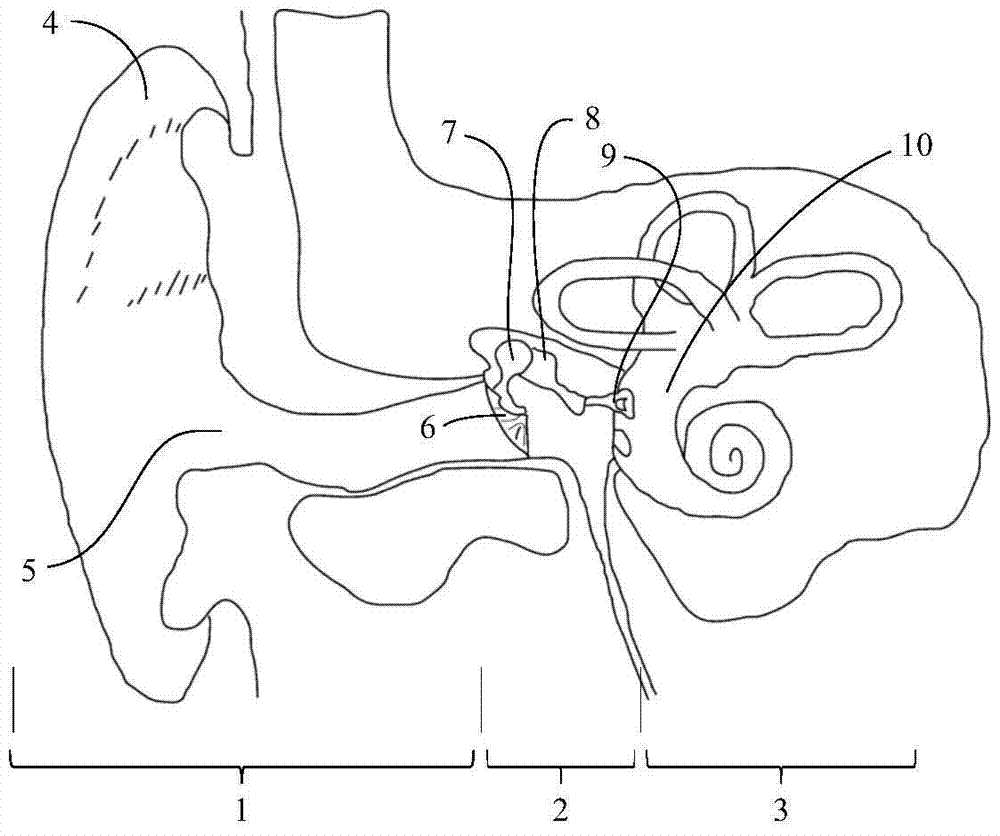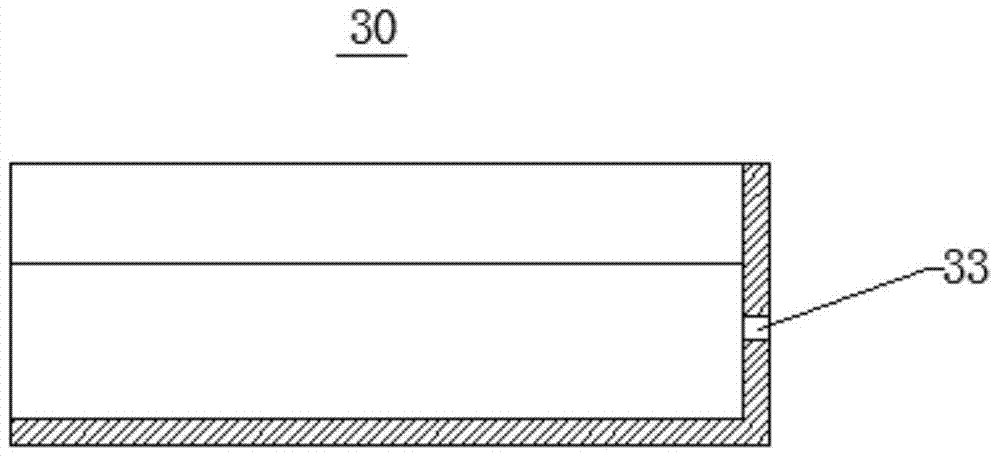Actuator based on stimulating tympanic membrane and its hearing aid
A hearing aid device and actuator technology, applied in the field of hearing aid devices and actuators for the treatment of hearing loss, can solve problems such as difficulty in fitting, inability to ensure the fit of the ear canal, and easy blocking of the ear.
- Summary
- Abstract
- Description
- Claims
- Application Information
AI Technical Summary
Problems solved by technology
Method used
Image
Examples
Embodiment Construction
[0051] The present invention will be further described below in conjunction with the accompanying drawings.
[0052] Such as figure 1 It is a schematic diagram of the human ear structure, showing the cross sections of the outer ear 1 , the middle ear 2 and the inner ear 3 . Among them, the outer ear 1 mainly includes the auricle 4 and the ear canal 5; the middle ear 2 includes the tympanic membrane (eardrum) 6 and the ossicular chain. The ossicular chain consists of three tiny interconnected bones (ossicles), the malleus7, the incus8 and the stapes9. The malleus 7 is attached to the eardrum 6, while the stapes 9, the last bone in the ossicular chain, is coupled to the cochlea 10 of the inner ear. In the normal auditory system, the pinna 4 of the outer ear 1 collects pressure fluctuations in the external air, and transmits them to the tympanic membrane 6 through the ear canal 5, causing the vibration of the tympanic membrane 6 and the ossicular chain in the middle ear 2 syste...
PUM
 Login to View More
Login to View More Abstract
Description
Claims
Application Information
 Login to View More
Login to View More - R&D
- Intellectual Property
- Life Sciences
- Materials
- Tech Scout
- Unparalleled Data Quality
- Higher Quality Content
- 60% Fewer Hallucinations
Browse by: Latest US Patents, China's latest patents, Technical Efficacy Thesaurus, Application Domain, Technology Topic, Popular Technical Reports.
© 2025 PatSnap. All rights reserved.Legal|Privacy policy|Modern Slavery Act Transparency Statement|Sitemap|About US| Contact US: help@patsnap.com



